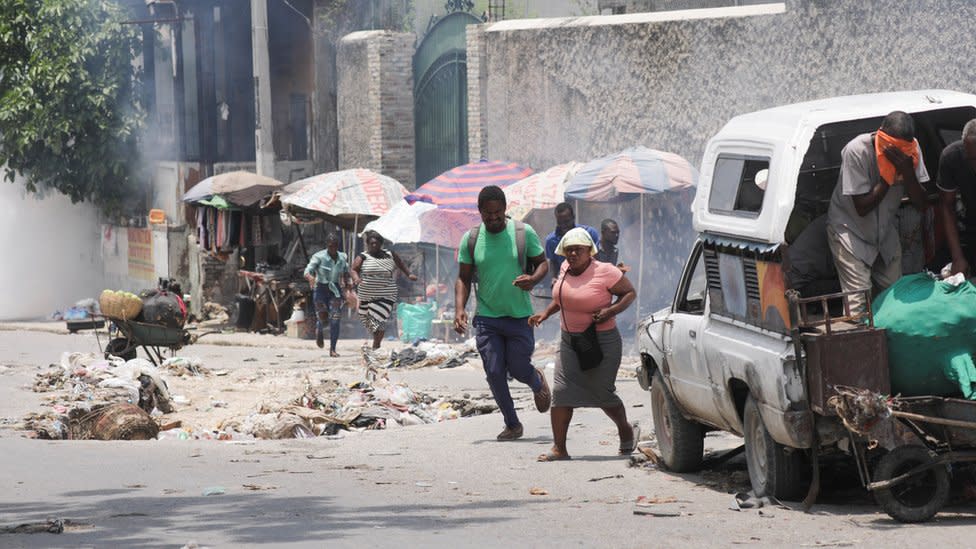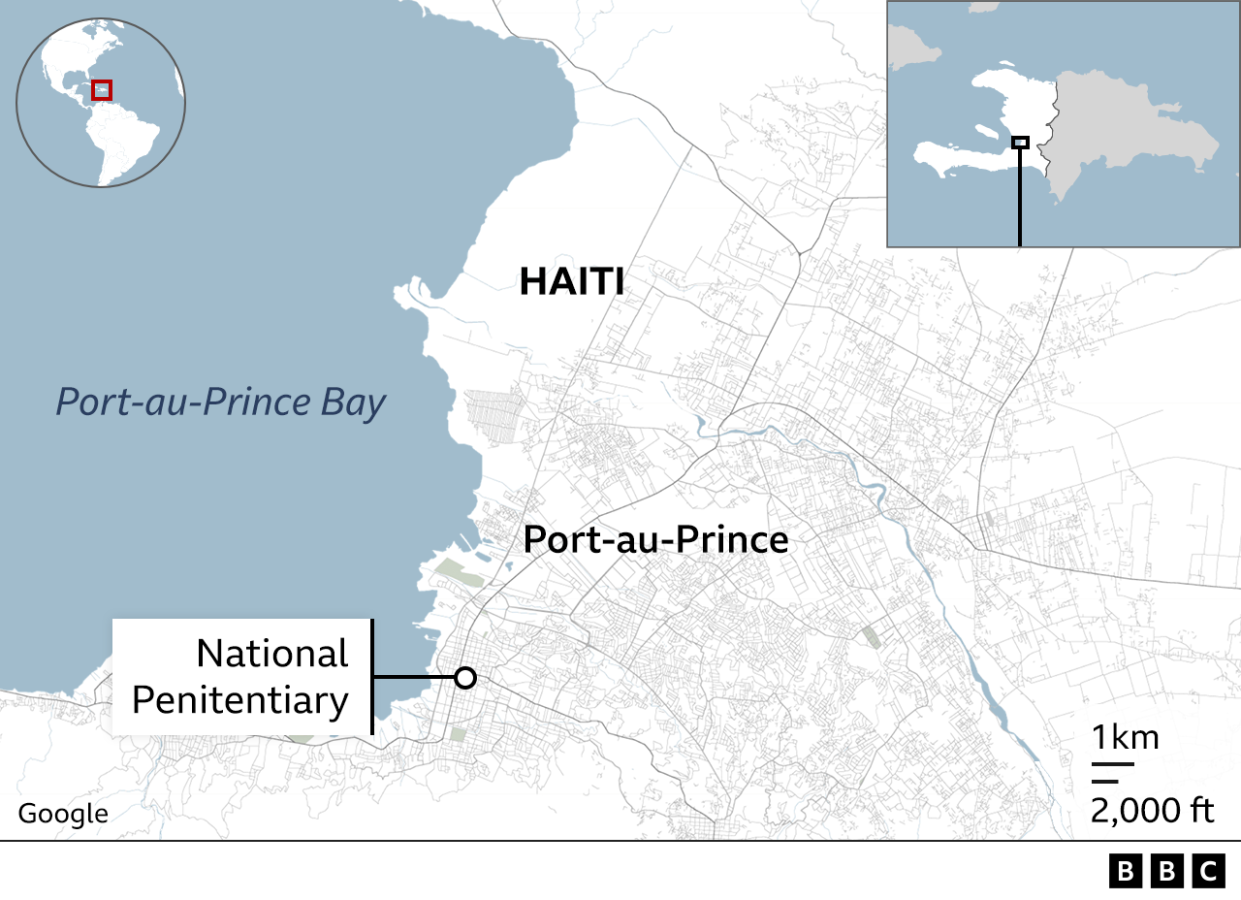Haiti transitional council ceremony forced to change venue as violence persists

A new body tasked with forming Haiti's next government will swear in its members on Thursday, as violence continues in the capital.
A swathe of recent gang violence forced officials to move the ceremony from the National Palace to the outgoing prime minister's office.
Ariel Henry said last month that he would resign after armed groups blocked his return to the country.
The gangs are in control of most of the capital, Port-au-Prince.
They have capitalised on the power vacuum left by the prime minister's exit and expanded their control over swathes of the country, which has effectively been rendered lawless in places.
Ariel Henry resigned after being prevented from returning from Kenya, where he had signed a deal to import a multinational security force in a bid to restore law and order.
His departure has left Haiti, an impoverished Caribbean nation home to more than 11 million people, without a prime minister from 12 March.
A newly formed transitional council, expected to name an interim prime minister, has since scrambled to impose tight security measures ahead of a ceremony swearing in its nine members.
The council was established to draw up a plan to return Haiti to democratic rule, and is backed by other Caribbean nations and the US.
Gunfire heard near the National Palace, where the ceremony was due to take place, forced a change of venue to the prime minister's office, known as Villa d'Accueil.
On Wednesday, police used tear gas to disperse crowds surrounding the streets near palace.
Gangs who have previously attacked the palace had promised to derail the ceremony, with one of Haiti's most powerful gang leaders issuing a threat in a video message posted to social media that appeared to be aimed at the council.
"Whether or not you're installed, this message is for you: Brace yourselves," Jimmy Cherizier warned.
Chérizier, also known as Barbecue, is the most prominent figure in a loose alliance of gangs known as Viv Ansanm (Live Together), which is in control of around 80% of Port-au-Prince.
Last month, he said he would consider laying down weapons if armed groups were allowed to take part in talks to establish the new government.
He said he was "not proud" of the spiralling violence in Haiti, and warned the crisis could continue if groups like his - which rail against "corrupt politicians" - are not part of a future government.
The situation in Haiti has been described as "cataclysmic" by the United Nations in a report published last month.
It said there had been more than 1,500 people killed and 800 injured in the first three months of 2024.
The report detailed the "harrowing practices" of the gangs, which are accused of using extreme violence and sexual abuse as a means of punishment and control.
Aid groups have reported difficulty in getting food and water into the capital, warning that millions are unable to find sustenance, with some on the verge of famine.
Haiti: The basics
The Caribbean country shares a border with the Dominican Republic and has an estimated population of 11.5 million
It has a land area of 27,800 sq km, which is slightly smaller than Belgium and about the same size as the US state of Maryland
Chronic instability, dictatorships and natural disasters in recent decades have left Haiti the poorest nation in the Americas
An earthquake in 2010 killed more than 200,000 people and caused extensive damage to infrastructure and the economy
A UN peacekeeping force was put in place in 2004 to help stabilise the country and only withdrew in 2017
In July 2021, President Jovenel Moïse was assassinated by unidentified gunmen in Port-au-Prince. Amid political stalemate, the country continues to be wracked by unrest and gang violence

